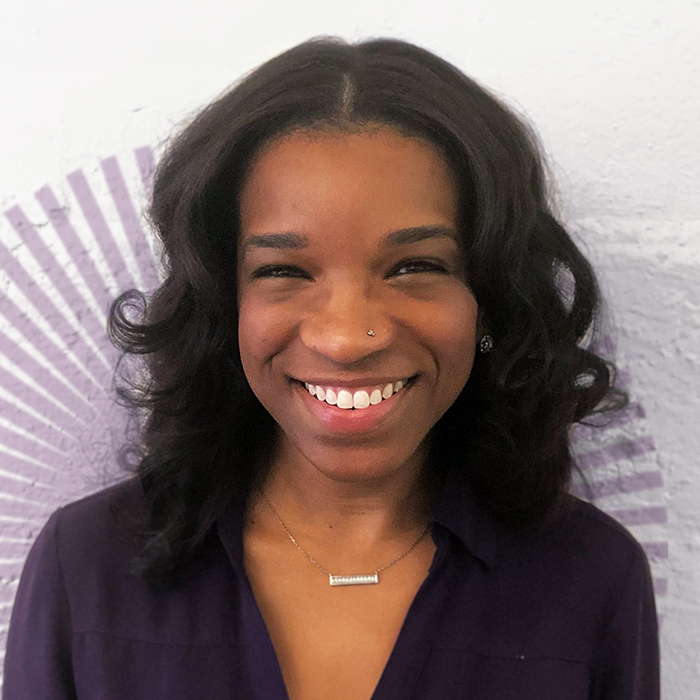Let’s Break it Down | Please Start Talking to Your Kids About Racism
Over the weekend in the U.S, there were two mass shootings — one in Buffalo, New York, and another in Orange County, Calif. — that we now know were hate crimes. The senseless deaths of eleven people (and injuries of at least four others) were motivated by racism directed at Black and Taiwanese communities.
Over the last few days, we’ve learned a lot about the hate crime targeting Black patrons at the Tops grocery store in Buffalo, NY thanks in part to the perpetrator’s 180-page racist manifesto. Amid the coverage of the victims and think pieces on why and how young White men continue to commit these horrific crimes, another story caught my attention. It highlighted that, among all the planning the shooter was doing to carry out this racist attack, his parents likely had no idea what was going on. How is this possible?
While he apparently worked to hide his views from his parents, I wonder if they were engaging him in conversations about race. If so, they would be in the minority — the aggregate evidence suggests that only about 30% of White parents in the United States talk to their children about race, and even the content of those conversations varies widely. In most cases, the discussions are spent espousing a colorblind racial ideology — communicating that the best way to navigate race relations in this world is to claim to “not see” race at all. Only about a third of the conversations were explicit about racial tensions in modern society and their historical underpinnings. This is critical, because for children, talking about race with parents leads to a host of positive outcomes. For White children in particular, explicit conversations about race can improve attitudes toward other racial groups and reduce children’s biases.
Although conversations about racism may not be commonplace in everyday conversation, arguably, specific incidents — like the Buffalo shooting, or George Floyd’s murder — provide a unique opportunity for parents to engage with their children about racism. White parents, it seems, rarely take this opportunity. One study found that only 37% of White parents discussed specific race-related events with their children, and another study found that White parents increased discussions of colorblindness after George Floyd’s murder, compared to before his murder. Taken together, the research suggests that White parents are not having important conversations about racism with their children, and that the consequences of this are quite dire.
How could this be? Dr. Sylvia Perry and her colleagues offer one hypothesis: “Thus, rather than feeling anxious about their ability to discuss race, some White parents seem to feel unmotivated to do so, or even believe that they should not do so” (p.7-8). Indeed, the study comparing conversations pre- and post-George Floyd seems to corroborate this: at both timepoints, White parents held similarly-low concerns that their children would be biased. Perhaps it’s true that, for most White parents, the idea that their child would become Payton Gendron isn’t a concern. And, because it’s so little of a concern, the discussion of racism never comes up — potentially until it’s too late.
Perhaps parents also underestimate the impact of what their kids ARE hearing from other sources. The ongoing narrative being pushed by the most watched TV personality in the United States. Or, the slurs used by a high profile podcaster. Or, the conversations happening on (not to mention content of) their favorite video game. All of these things — from explicit racism to dog whistles — shape the way children and young adults view the world around them. Just because parents aren’t talking with their children about racism doesn’t mean their children aren’t hearing the messages somewhere.
Every day at Paradigm, we work with adults who want to learn how to be more inclusive at work, who are curious about inequity and how it manifests, and who are seeking tools to combat racism. We provide them with strategies for having conversations across lines of difference, which research shows can be notoriously anxiety-provoking, and implore them to embrace discomfort as a tool for behavior change. And, we do this because we believe it will help change the world for the better. But the Buffalo shooting and the details of the double-life the suspect led remind me that we need to go further than re-educating adults about racism at work. We need those adults to be empowered to share what they’ve learned with their friends, their families, and their children. We need those adults to be so moved by what they learn that they feel very motivated to have these conversations with their children and loved ones.
I often find that people misunderstand how racism persists. They say inaccurate things like, “racism is something that exists in older generations, and it will get better once the older folks aren’t here anymore.” Those kinds of statements ignore the reality that, every day, we are cultivating an environment for the current children and adolescents who will attain and crystallize their views as they age. The best thing that adults can do — particularly White adults — is talk, explicitly, with your children about racism. And, if you need some help or suggested resources, here are some to get you started.
May 18, 2022

 Our website uses cookies to distinguish you from other users of our website. This helps us to provide you with a good experience when you browse our website and also allows us to
improve our site. By continuing to browse our website, you’re agreeing to our use of cookies. For more information, please read our
Our website uses cookies to distinguish you from other users of our website. This helps us to provide you with a good experience when you browse our website and also allows us to
improve our site. By continuing to browse our website, you’re agreeing to our use of cookies. For more information, please read our
